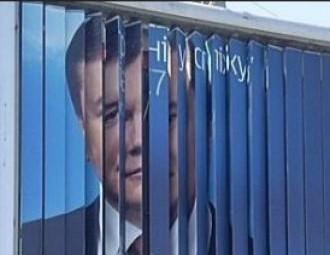Vladimir Kuprij: Yanukovich’s statements are classic examples of using hostages in political bargain

Viktor Yanukovich continues calling himself Ukraine’s President. Why does he need that? Is he trying to gain favor with Russia, or there is a chance that he can return to his president duties?
His opinion on the issue with the “EuroBelarus” Information Service shared Vladimir Kuprij, the coordinator of the first working group of the Ukrainian National Platform of the Eastern Partnership Civil Society Forum, PhD in state administration.
- Yanukovich’s “Rostov messages” are typical examples of using hostages in political bargaining. Kremlin is well aware of its incapability to voice everything it wants. Thus, the texts voiced by Yanukovich, are basically the messages of the Russian authorities to the Ukrainian authorities, where demarcation lines of confrontation are indicated.
There are no people left who are still fondly hoping that Yanukovich will return to Ukraine as its president. Everyone understands that he lost any possibility to influence the situation. However, there are still possibilities to use him and his alleged legitimacy in order to exert pressure on the new Ukrainian authority.
In order to disrupt elections assigned for May 25, 2014, yet another scenario is being used: the statement of Yanukovich (or rather Kremlin) about the non-recognition of the legitimacy of this election, introduction of draft law on postponement of the election, appeal to the Superior Administrative Court about the illegality of appointing the acting President. There is high possibility that this scenario will be successful. I.e. all possible instruments for non-admission or postponing of the legitimate Ukraine’s authority are being used, which gives Russia time to bargain with the key actors in the world politics. Unfortunately, Ukraine is an object in this trading, not the subject.
If the closest Yanukovich’s associates admit that his behavior and statements are inadequate and Putin says that Yanukovich basically abdicated responsibility for the country, what return to the power Viktor Yanukovich is talking about then?
However, his personality will long be used by Russia for exerting pressure on Ukraine, as well as in the inner Ukrainian political showdowns.
-
03.01
-
07.10
-
22.09
-
17.08
-
12.08
-
30.09










































